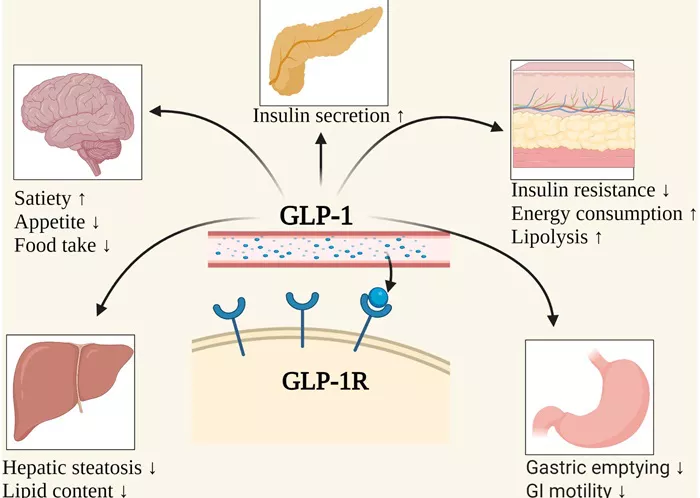As the cold and flu season approaches, maintaining a strong immune system becomes essential for staying healthy. According to experts, a nutrient-rich diet plays a crucial role in supporting immune function. While no single food can guarantee immunity, consuming specific foods that are rich in vitamins, minerals, and antioxidants can help optimize the body’s defenses.
How Nutrition Supports Immune Health
A balanced diet filled with essential nutrients helps the immune system function at its best. According to the National Institutes of Health (NIH), vitamins, minerals, and antioxidants contribute to a robust immune defense by reducing inflammation and promoting overall health. Nutritionists emphasize that the goal isn’t to “boost” the immune system but to provide the body with the necessary nutrients to prevent illness and promote wellness.
“Certain nutrients activate immune processes, making them more efficient,” says Sarah Schlichter, MPH, RDN. “For instance, vitamin C helps stimulate antibody production to fight infections, while vitamin A maintains healthy tissues that act as barriers against illness.”
Trista Best, RD, adds, “A nutrient-dense diet supports immune responses, helping the body fight off stress and infections.”
Top Foods for Immune Support
Citrus Fruits
Citrus fruits such as oranges, lemons, and grapefruits are renowned for their high vitamin C content, an antioxidant that plays a vital role in immune cell production and combating oxidative stress. Best explains, “Vitamin C is critical for producing immune cells like lymphocytes and phagocytes.” Additionally, citrus fruits are rich in flavonoids, which enhance antioxidant protection.
Yogurt
Yogurt is packed with probiotics, beneficial bacteria that support gut health. Since a significant portion of immune cells reside in the gut, maintaining a healthy gut microbiome is key to immune function. “Probiotics in yogurt strengthen the gut’s defense against pathogens,” Schlichter notes. For maximum benefit, opt for plain yogurt with “live and active cultures” to avoid added sugars.
Garlic
Garlic has been celebrated for its antimicrobial and anti-inflammatory properties for centuries. It contains allicin, a sulfur compound that has shown potential immune-boosting benefits. Best highlights, “Garlic’s compounds help reduce the severity and duration of illnesses while also supporting the body’s detoxification processes.”
Sweet Potatoes
Sweet potatoes are rich in beta carotene, a precursor to vitamin A, which is essential for maintaining healthy tissues and skin. Schlichter explains, “Vitamin A plays a crucial role in keeping tissues that guard against infections healthy.” A single sweet potato provides more than the daily recommended intake of vitamin A, along with fiber, potassium, and vitamin C, making it an excellent choice for immune support.
Leafy Greens
Leafy greens like spinach, kale, and Swiss chard are powerhouses of vitamins A, C, and E, all of which contribute to improved immune health. “Leafy greens contain folate, a nutrient essential for immune cell production and maintaining strong defenses,” Best says. The antioxidants in these greens protect cells from oxidative stress while vitamin A supports skin health, the body’s first defense against pathogens.
Almonds
Almonds are rich in vitamin E, an antioxidant that plays a key role in protecting immune cells from damage. Schlichter explains, “Vitamin E helps protect immune cells from oxidative stress, and almonds also contain healthy fats that enhance the absorption of fat-soluble vitamins like A and E.”
Additional Tips for Immune Support
While a nutrient-dense diet is crucial, other lifestyle factors also contribute to immune health. Here are some expert recommendations:
Hydration: Drinking enough water is essential for cellular health, as it helps transport nutrients and waste. “Hydration is key to maintaining optimal immune cell function,” Best says.
Exercise: Regular physical activity promotes healthy blood circulation, which supports the efficient movement of immune cells throughout the body. The CDC recommends at least 150 minutes of moderate-intensity exercise each week.
Sleep: Quality sleep is vital for immune function, as it supports cell repair and the production of infection-fighting molecules. Best emphasizes, “Proper sleep helps the body recover and strengthens immune resilience.”
Stress Management: Chronic stress can suppress immune function by increasing cortisol levels. Best suggests techniques like meditation, yoga, and deep breathing to manage stress and maintain strong immune defenses.
Conclusion
A strong immune system requires more than just specific foods or supplements. A balanced diet rich in vitamins, minerals, and antioxidants, along with proper hydration, exercise, sleep, and stress management, is key to supporting your immune health. Foods such as citrus fruits, yogurt, garlic, sweet potatoes, leafy greens, and almonds are excellent choices for maintaining immune function. Speak with a healthcare provider or registered dietitian if you have questions about how to best support your immune system.
Related Topics
How to Keep Your Skin Hydrated This Winter: Expert Tips for a Healthy Glow
6 Common Mistakes in Resistance Band Training and How to Correct Them
Is Butter Healthy? Nutritionist Explains the Pros and Cons of the Popular Spread


































